Londonderry's walls celebrate their 400th birthday
- Published
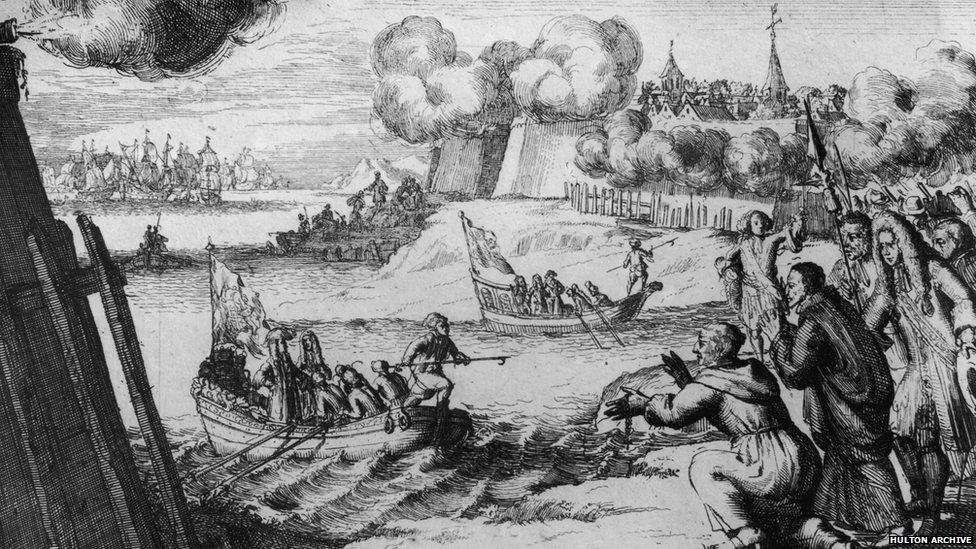
2013 marks Londonderry's year as the first UK City of Culture. It also marks 400 years since the Maiden City's famous walls were commissioned. This engraving illustrates the Siege of Derry following the arrival of James II at Kinsale, depicted in the foreground. (Photo by Hulton Archive/Getty Images)
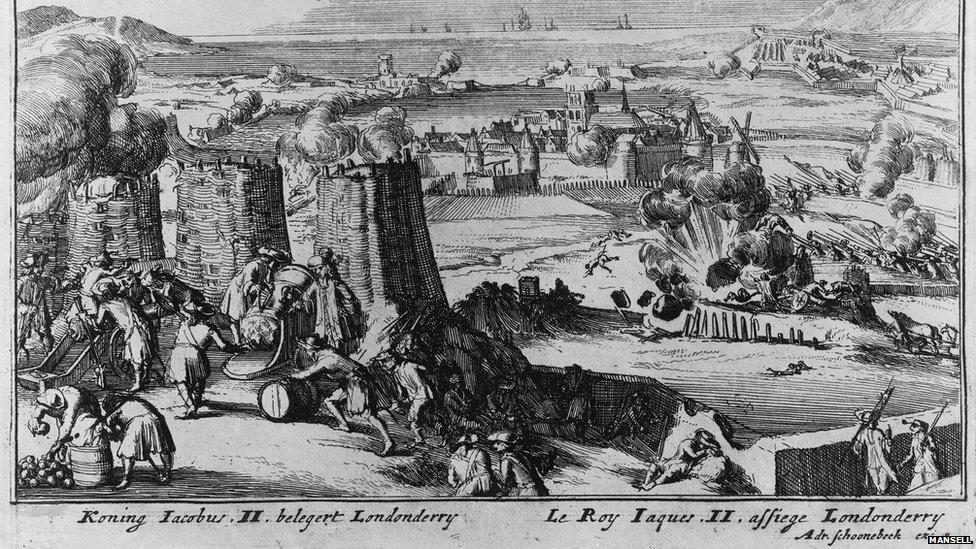
The walls were built by the Honourable the Irish Society as defences for early 17th century settlers from England and Scotland
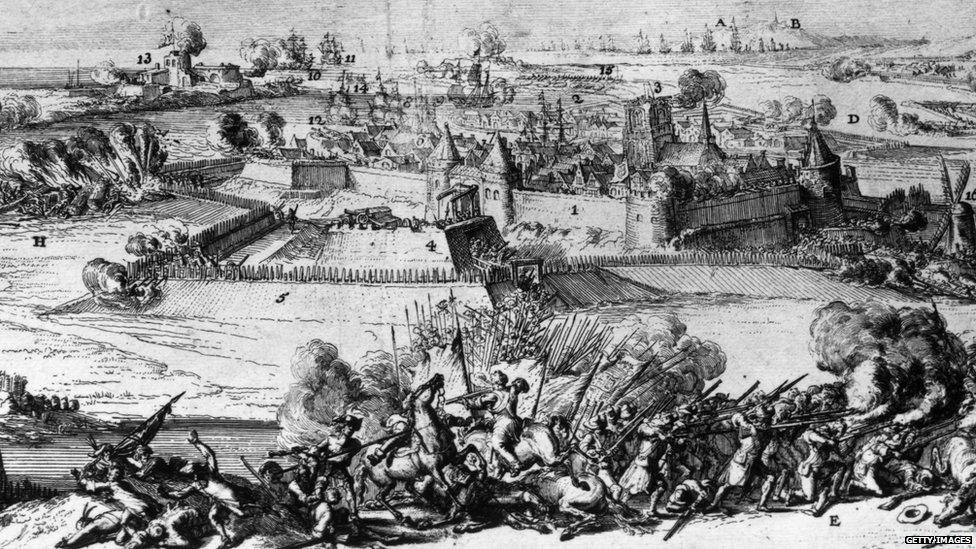
This weekend, two special church services at St Columb's Cathedral in Derry and at St Patrick's Church in Coleraine, will mark the four centuries since the signing of the charter that established the city and its defences
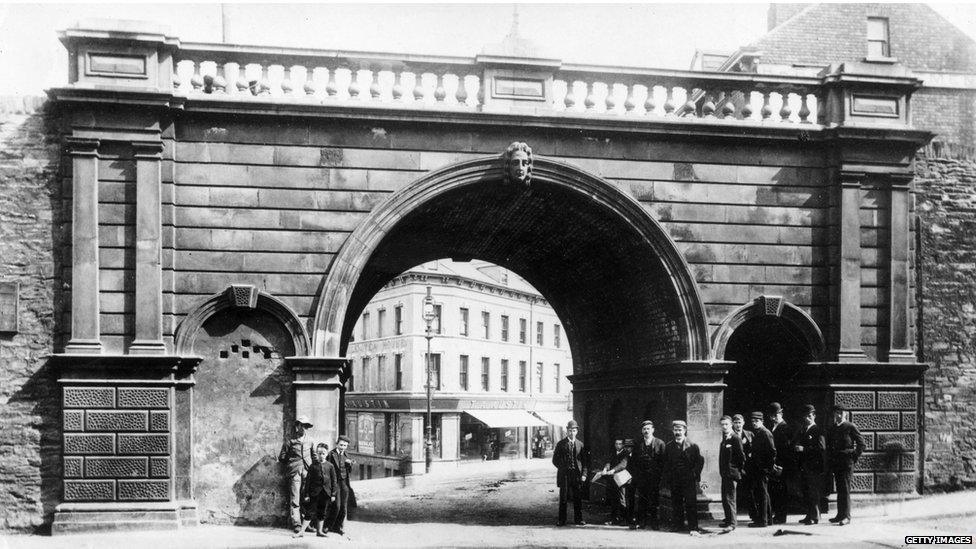
Derry was the first planned city in Ireland. With four main roads leading off a central 'Diamond', passage into the city was originally made through four gates like this one at Ferryquay Gate. Later, three more gates were added
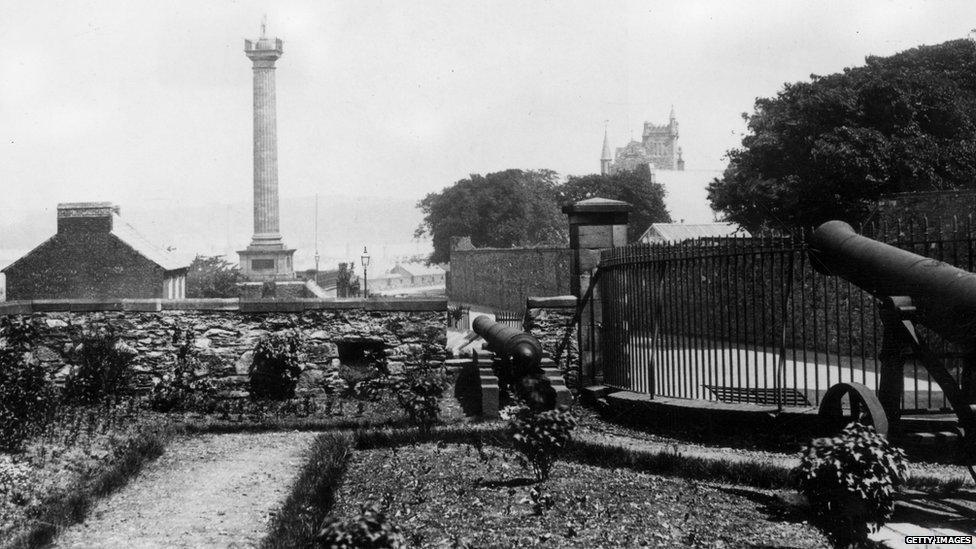
The walls are Northern Ireland's largest state monument and, as the last walled city to be built in Europe, many argue the Maiden City's ramparts are the most complete and spectacular
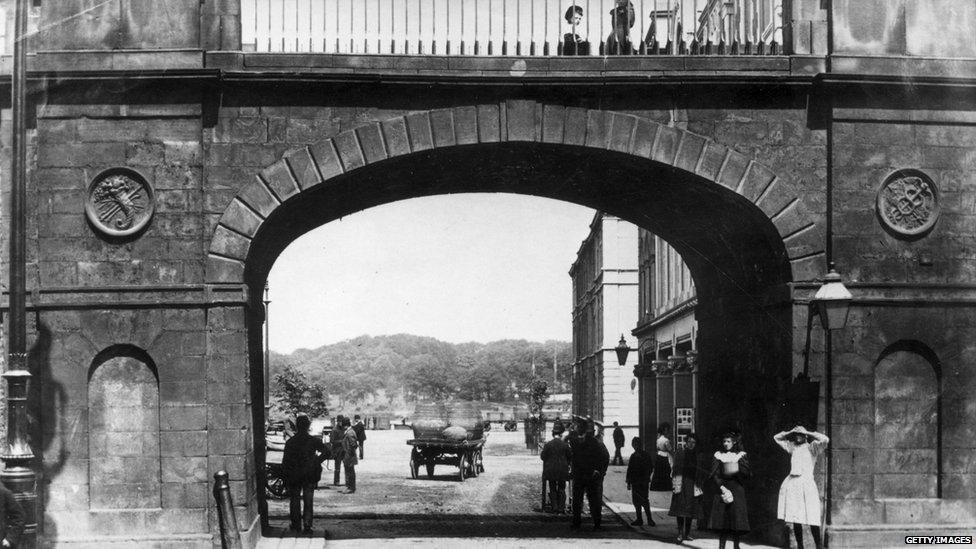
The four gates built into the original design were Bishop's Gate, Ferryquay Gate, Butcher Gate and Shipquay Gate (pictured above circa 1900). Magazine Gate, Castle Gate and New Gate were added later, making seven gates in total
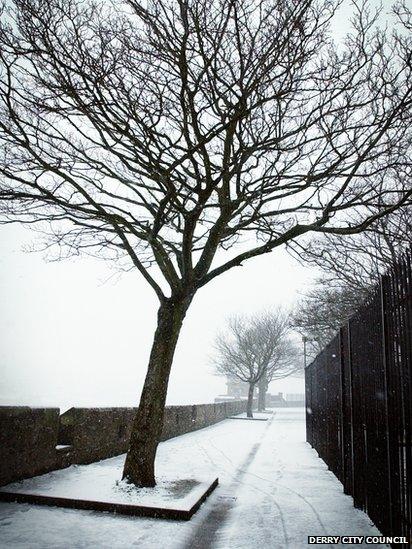
During the troubles, most of the structure was sealed off for security reasons
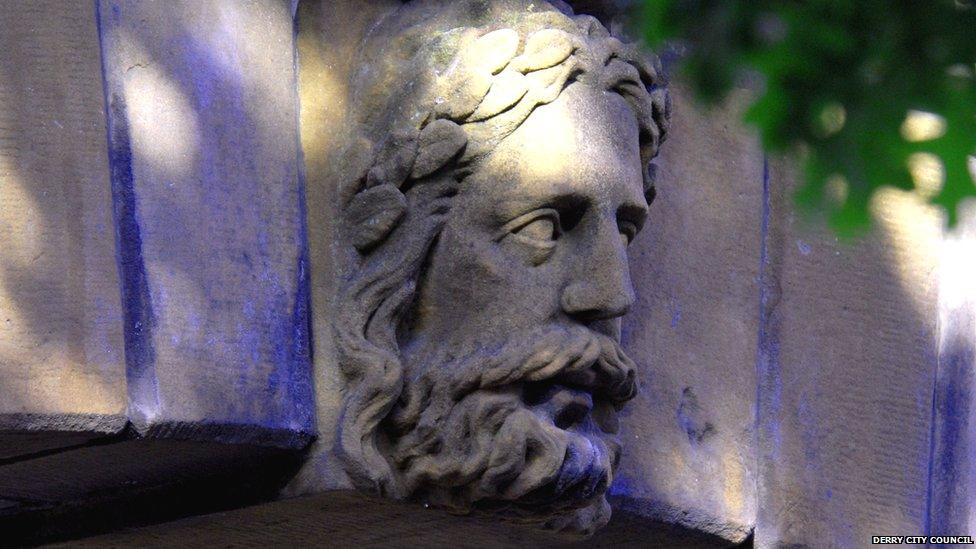
With the easing of violence in the mid 1990's, public access was slowly restored and following the Good Friday Agreement, the entire 1.5km circuit was re-opened
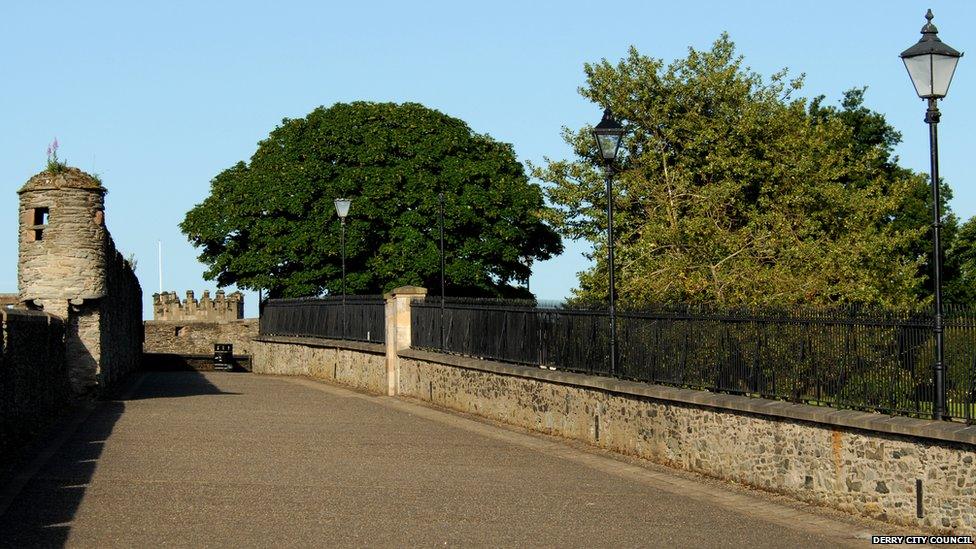
While commissioned in 1613, the walls were constructed between 1614 and 1619
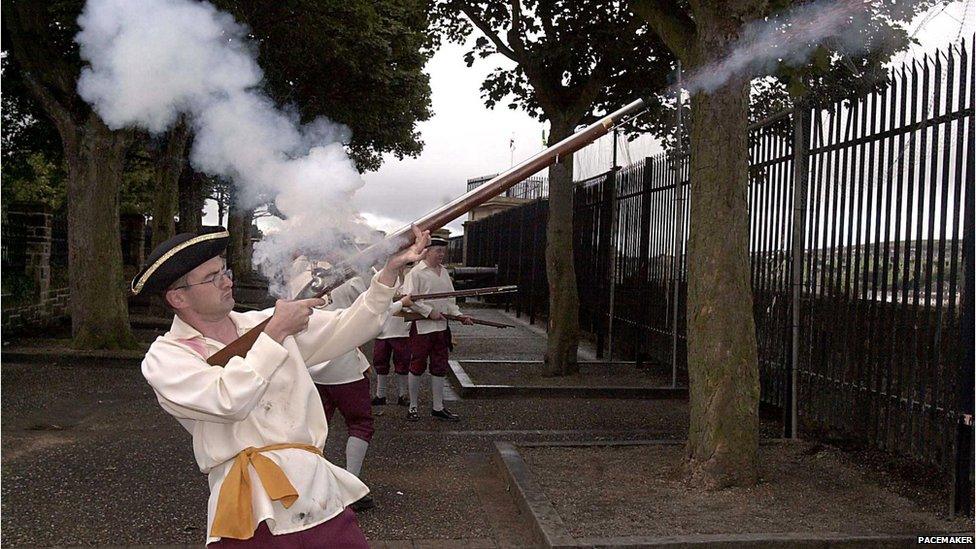
According to Derryswalls.com, the total cost of the project was calculated at £10,757

Historic buildings within the walls include the 1633 Gothic cathedral of St Columb's, the Apprentice Boys Memorial Hall and Austin's - Ireland's first department store
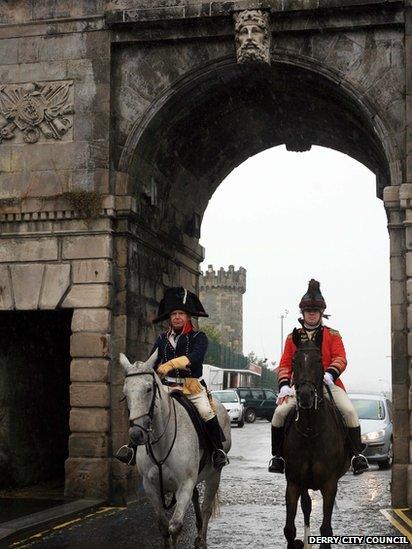
Derry's fortifications were never breached, withstanding several sieges including one in 1689 which lasted 105 days, hence the city's nickname, the Maiden City

Maintenance of the walls is a complicated affair involving collaboration between NIE, the Roads Service, Derry City Council, the City Centre Initiative, Derry Visitor And Convention Bureau and the Honourable, the Irish Society who still own the city defences after 400 hundred years
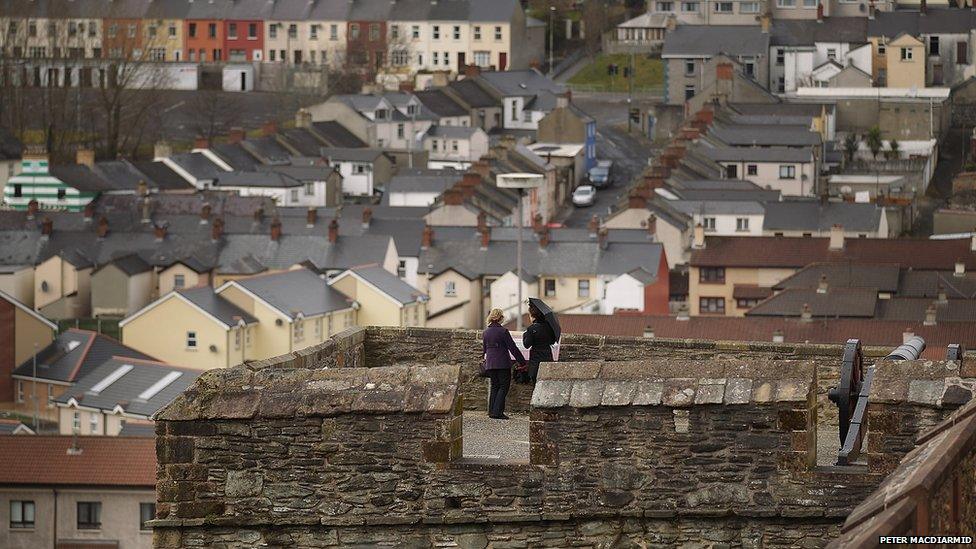
The Department of the Environment has taken care of them since 1955. A team of masons based in Derry keep the structure in good repair. One of the team recently retired after 35 years on the walls
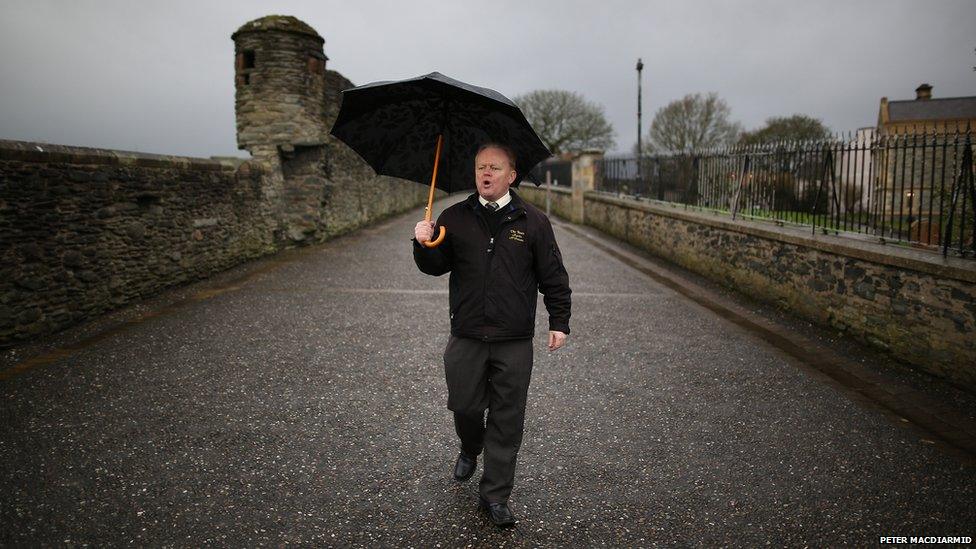
The walls have become a valuable resource for tourism entrepreneurs like Martin McCrossan
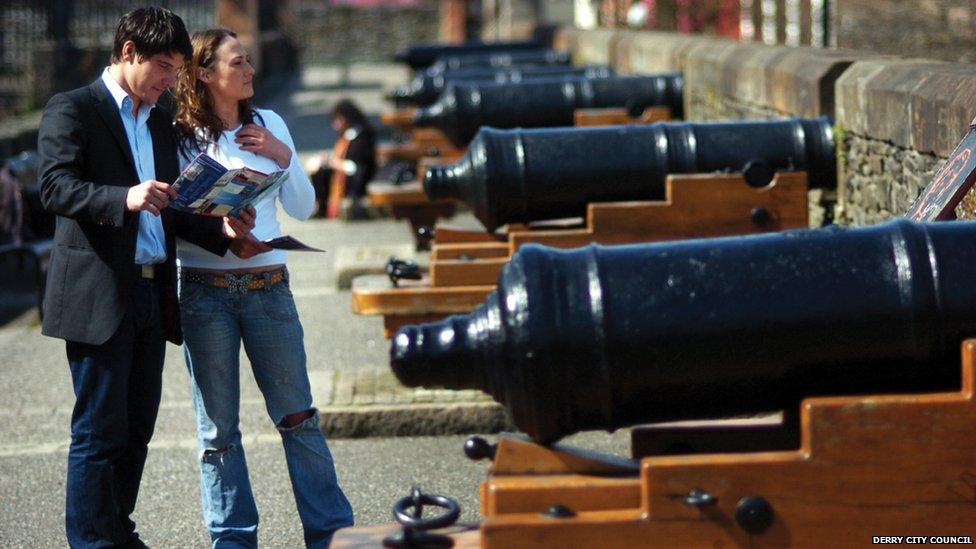
Although the walls are now open to everyone, they may still hold secrets. Legend has it that beneath them is a hidden network of passages built during the Great Siege to connect the city underground